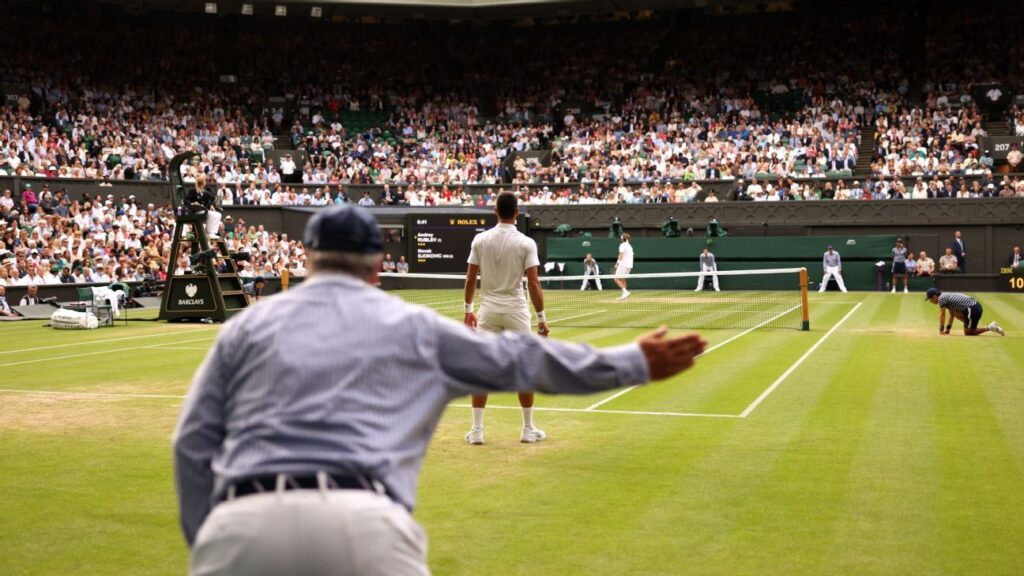Big changes are coming to Wimbledon next year! For the first time in 147 years, the storied tennis tournament will eliminate line judges, replacing them with cutting-edge artificial intelligence technology. The All England Club made this groundbreaking announcement on Wednesday, revealing that all 18 courts will be equipped with automated electronic line-calling systems starting in 2025.
The Future of Line Calling
This leap into AI isn’t entirely new to the grand slam scene. The US Open has embraced the Hawk-Eye Live system since 2020, and its use is becoming a fixture on the ATP Tour. Wimbledon now joins this trend, with the automated voice technology taking over line-call duties. “Challenge” rounds, once a staple of the game, will be a thing of the past at this iconic event.
Sally Bolton, CEO of the All England Club, shared her thoughts on this significant shift: “The decision to introduce Live Electronic Line Calling at The Championships was made following a significant period of consideration and consultation. After reviewing testing results from this year’s Wimbledon, we believe the technology is robust, and it’s time for this important step toward maximum accuracy in officiating.”
This innovative step aims to provide players with a more consistent experience—one similar to events they’ve played in elsewhere. Bolton emphasized the club’s commitment to balancing tradition and technological advancement, expressing gratitude for the line umpires who have been an integral part of the officiating setup for many decades.
What Else is New at Wimbledon?
But that’s not all! Both the women’s and men’s singles finals will also see new start times next year; they’ll kick off later in the day at 4 p.m. local time. This is part of an effort to elevate the finals’ viewing experience, with the women’s singles final coming after the men’s doubles and the men’s singles final following the women’s doubles.
The All England Club’s commitment to innovation is likely to spark mixed reactions. While some might miss the traditional human element, the potential for increased accuracy and efficiency in officiating is exciting. Plus, with the latest tech already proving its worth at other tournaments, players can expect a reliable system that enhances their competitive experience.
With such a historic change on the horizon, it’s fascinating to think about how this could reshape the way tennis is played and officiated at Wimbledon. As fans and players gear up for the 2025 tournament, one can’t help but wonder: will this pioneering move set a new standard for all major tournaments around the globe?
The AI Buzz Hub team is excited to see where these breakthroughs take us. Want to stay in the loop on all things AI? Subscribe to our newsletter or share this article with your fellow enthusiasts.




